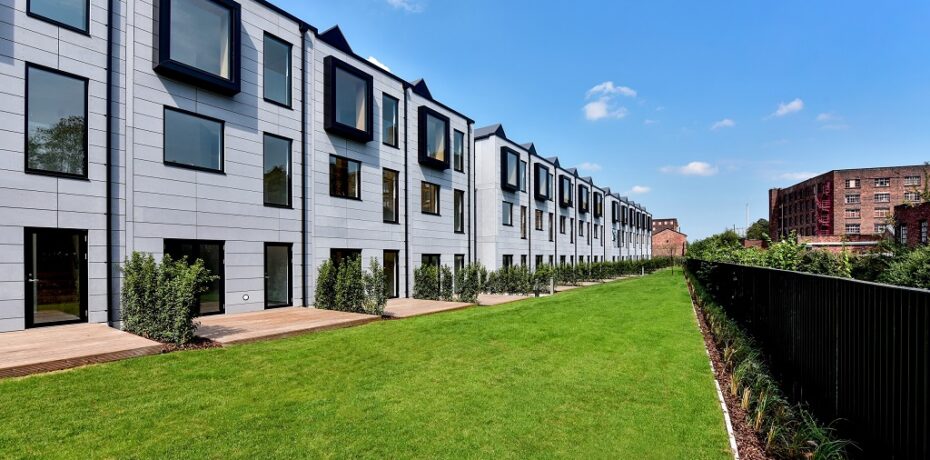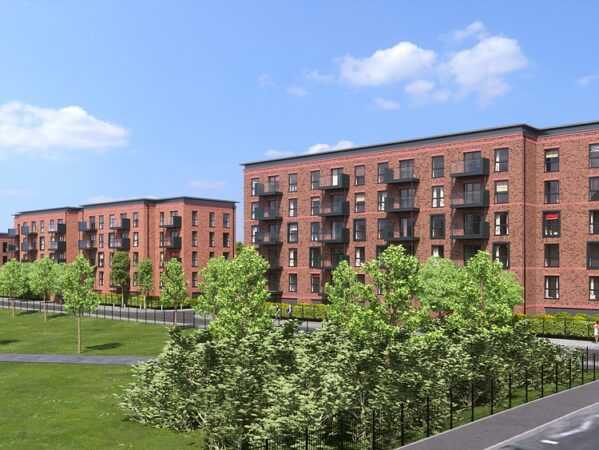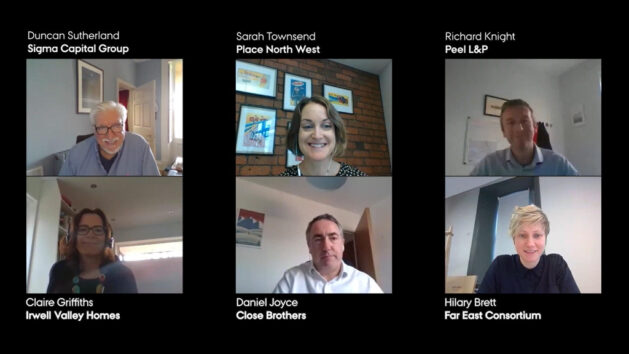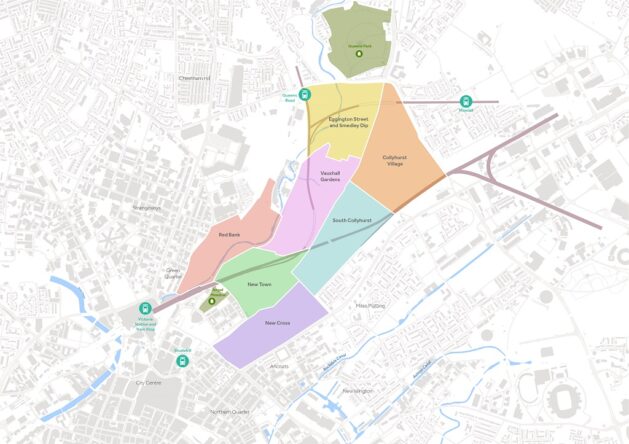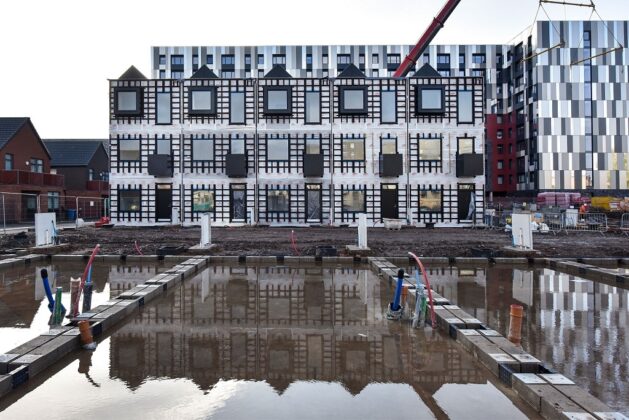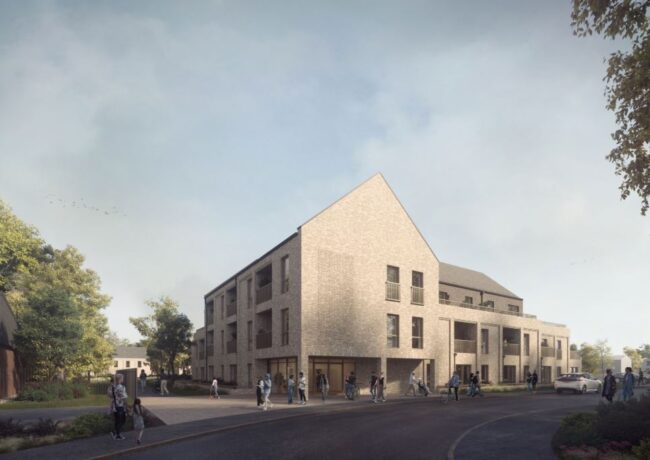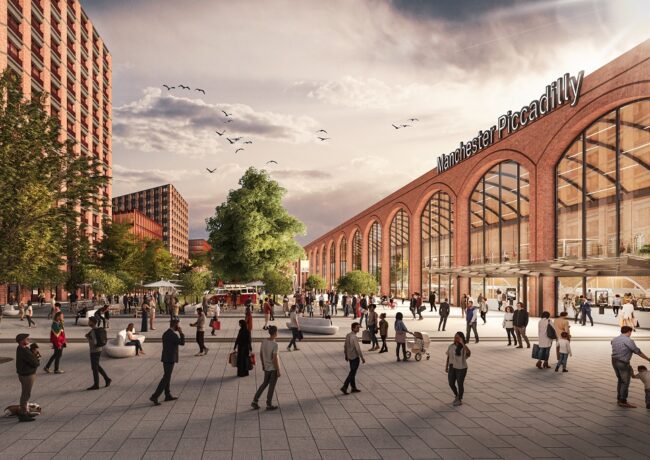Event Summary
Place RESI: Flexible design and green homes | Summary
The residential market is shifting in terms of its offer to buyers and tenants, but the journey towards creating homes fit for the future is only just beginning, according to speakers at the latest Place North West event.
Place RESI, held last week, provided an overview of residential projects across the region and explored how sustainability and flexibility of design and use can and should be embedded to meet people’s changing expectations.
The event was hosted by Place North West editor Sarah Townsend and sponsored by Sigma Capital Group, Lexington Communications, Close Brothers Property Finance, Rendall & Rittner, WSP and Trowers & Hamlins.
A full video recording of the event is available here.

Presentation – Affordable renting
Duncan Sutherland, regeneration director of PRS developer Sigma Capital Group, said the company aims to provide residents with affordable rental terms to take advantage of a declining trend in home ownership.
“The way we are going with mortgages, renting is going to come more to the fore without a doubt,” he said.
Sigma, which works with housebuilders including Countryside and Engie, is on site building a 298-apartment scheme in Broughton in Salford. All of the units for the first block have been let off-plan with rents starting at £650 a month.
Sutherland said there is likely to be a tightening of mortgage criteria in the short-to-medium term, meaning it would be more difficult for people to get on the property ladder, and added that renting provided a more viable option for many.
However, he acknowledged that there is ingrained “resentment” in society towards renting. “We need to say renting is a good thing. It’s not that bad.”
Panel one – a changing landscape
Hilary Brett, project director, Far East Consortium
Richard Knight, planning director, Peel L&P
Daniel Joyce, director, Close Brothers Property Finance
Claire Griffiths, executive director – growth, development & assets, Irwell Valley Homes
Duncan Sutherland, regeneration director, Sigma Capital Group
Daniel Joyce said he anticipates a shift in attitudes among developers after March 2021, when the Help-to-Buy scheme and Stamp Duty holiday ends. Since the start of the pandemic, the focus has been on completing live projects, rather than starting new ones, to take advantage of those initiatives.
He said: “2021 will be the year that we build out of recession. Starts on site have slowed down this year as developers concentrate on completions. Next year we will see a change in philosophy.”
He described the end of Help-to-Buy, which has “underpinned the housing market for some time” as a “cliff edge” from which the market could experience a dip, and urged the Government to introduce a new kind of stimulus to fill the gap.
Developer Far East Consortium is delivering the 15,000-home Northern Gateway regeneration masterplan in a joint venture with Manchester City Council. It is a project that Hilary Brett said will be “at the forefront of helping the city come out of recession”.
In terms of sustainable development, Brett said there needs to be a change in consumer attitudes to “balance the books”, so that demand increases for low-carbon housing. Reduced mortgage rates for those willing to buy green homes could act as an effective incentive.
“People don’t place value on the carbon neutral aspect of a home,” she said. “Right now, they wouldn’t pay an uplift to live in an apartment that is greener than another. [The responsibility] is not all on developers or construction firms.”
Richard Knight said Peel L&P’s housebuilding arm Northstone aims to bring “best practice into a market that has been dominated by major house builders”.
Northstone has completed the first homes at its debut development in Silkash near Bolton and it is in these suburban areas that Knight believes the most opportunities for regeneration lie. This is due to the relative density of city centres, as well as market saturation, he said.
However, he expressed concerns that the Government’s proposed planning reforms could overload local authorities already battling with budget constraints amid Covid-19.
“There is clearly a recognition from Government that the current system isn’t working well and needs to change but the jury is out [on how successful the reforms will be]. The risk is that planning authorities may slow down.”
Duncan Sutherland said the cost of greening homes is the biggest barrier to creating more sustainable communities but agreed that more needs to be done to make this happen.
“We cannot leave existing communities behind. We need to figure out the priorities and work out how to fix existing stock in terms of carbon and cladding,” he said.
The potential decline in popularity of city centre living in the wake of Covid presents an opportunity to rethink how towns and cities work, Sutherland added. Development should be done in “the context of Covid”, not just in terms of making profit.
Claire Griffiths said there are various financial packages that could support the creation of new affordable homes but she agreed with Sutherland that the biggest challenge is bringing existing stock up to standard in line with Greater Manchester’s carbon agenda.
“We can’t leave existing communities behind in ‘carbon ghettos’. It is a big challenge and we need to improve these places. We have to find the extra money and [that required sum] is not insubstantial.”
Griffiths said there are “several billions” of affordable development in Greater Manchester and that the sector will contribute to Government’s ‘Build Build Build’ agenda.
“It is going to be a fascinating decade. In five years’ time, things will be looking completely different.”
Presentation – Prospects for prosperity
Suzanne Benson, partner at Trowers & Hamlins, presented data the law firm has collected from a year-long study examining the concept of prosperity in four UK cities: Manchester, Edinburgh, Exeter and London. She focussed on Manchester during the event.
The study was aimed at finding out residents’ views on what prosperity is and what contributes to it, and found that only 23% of people in Manchester thought that central Government was improving prosperity in the city.
Additionally, people in Manchester were the most negative of the four cities when asked how confident they were about long-term prosperity.
Respondents in the city were most positive when asked if they thought future generations would want to live in Manchester, with 74% answering in the affirmative. However, there was a gloomier picture in terms of affordability, with only 27% of those asked said future generations would be able to afford to live in the city.
Panel two – Futureproofing housing
Andrew Johnston, head of planning, Urban Splash
Dan Jackson, planning director, WSP
Gillian Harrison, associate, Levitt Bernstein
Nigel Banks, special projects director, ilke Homes
Paul Boyfield, group property director, Lexington Communication
Andrew Johnson said take-up of ‘modern methods of construction’, such as modular construction, whereby homes are built in segments in a factory before being transported to site and assembled, would increase over the coming years.
House by Urban Splash, the developer’s modular housing arm, offers residents the opportunity to customise their homes and Johnson claimed that the product is quicker to deliver and greener than traditional construction methods.
“[MMC] is about quality and design and affordability as well. Building in a factory ensures quality and speed as well as limited disruption for local residents,” he said.
Gillian Harrison extolled the virtues of embedding flexibility into the design of residential schemes and said she envisages a move towards homes whereby parts, such as workspaces, can be added and taken away as required.
In the meantime, however, Harrison said that shared spaces are becoming more common as a solution to changing space requirements and the rising living costs, and that the ‘sharing economy’ presents opportunities for residential developers and others in the industry.
“Rather than paying to have a private space, people might look to have a cheaper shared space that is more affordable. We do it with cars and we can extend that logic to the development industry,” she said.
The pandemic has brought into sharp focus aspects of design that have always been important, Harrison added.
“I think Covid has changed everything and almost nothing. All things that were important before remain so. While the world does feel like a different place, it just refocuses us on those core needs that have always been there.”
Dan Jackson said he was disappointed at Greater Manchester’s lack of ambition in terms of housing targets outlined in the Greater Manchester Spatial Framework.
“The target of 10,500 homes a year is below recent activity. We should be aspiring for greater growth. We are seeing increased appetite for additional homes outside the core and in more rural areas,” he said.
Jackson agreed with comments on sustainability made in the first panel and urged a move towards modern methods of construction to meet carbon neutrality goals.
“There needs to be a significant amount of high-level investment to give the housing industry the confidence to switch to sustainable methods of construction.”
Nigel Banks, whose company also focuses on modular housing, said the move towards modern methods of construction is gathering pace.
“People are willing to dip their toes in the water and now we are seeing larger, wholly modular developments that can be delivered faster. Speed of build [rather than speed of sale] is the driver. The faster you can build PRS schemes the more cost-effective it becomes,” he explained.
However, in order for MMC development to be effective, community engagement needs to happen at an early stage, Banks said.
“Some clients have come to us with schemes and ask if we can build them out and that doesn’t really work. We need to start from the outset. You can’t shoehorn it in later in the day.”
Paul Boyfield said that a movement of residents en masse away from city centres in the wake of Covid-19 is unlikely to happen and that some trends associated with the pandemic will not endure.
“There is anecdotal evidence of people not being keen on city centre apartments but things will go back to normal. We have seen an increase in demand for more suburban housing that may settle down when things reopen,” he said.
Boyfield supported a move towards digital planning processes, for example using online technologies for consultations on planning applications – a practice enforced during 2020 and encouraged in the Government’s planning white paper. Boyfield claimed digital consultation could result in more balanced outcomes.
“Councils have made a good fist of embracing digital engagement,” he said. “In-person consultations tend to only attract ‘nimbys’. Traditionally, councils get negative feedback from people who live next door but digital consultation could result in a wider range of feedback.”


